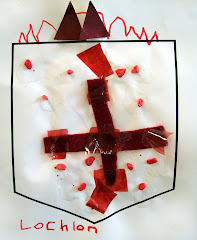Michael Grose:
Parents and teachers often ask me how to build resilience in kids.
Parents and teachers often ask me how to build resilience in kids.
My response is always the same. “Start by
building independence and resilience will follow.”
Children are hard-wired for independence
Sometime around the age of fifteen months
(give or take three months) most children will make a strong case for
self-sufficiency. They demand to do things their own way. This demand is soon
backed by a strong voice – “NOOOO!” and the more articulate cries of “I can do
it!” as their third birthday approaches.
This is the time to harness their push for
independence and self-sufficiency. Their push for independence will see most
children take incredible physical risks in the form of play, the exploration of
their immediate environment and their wish to gain mastery over their
environment. Concerned parents will naturally minimise risks by moving
furniture around; keep doors closed and hiding sharp implements at home, to
name a few protective measures. But parents can’t eradicate all risks. They
recognise that kids will fall and hurt themselves but they’ll also get up and
go again. In time, they’ll learn to assess situations, stare down their fears
and test themselves out in new situations. Falling down, brushing yourself off
and trying again is part of the natural learning experience for most young
children. Parents don’t have to do much more than assess a situation for real
dangers, stand back and allow kids to explore their environments and pull them
up when their play and explorations transgresses the rights and peace of
others.
So what’s this got to do with resilience?
Well, everything really. Independence is
the pursuit of mastery over one’s self and one’s environment and it rarely
happens without mishaps and mistakes. It nearly always involves hurt, hardship,
frustration and fear. That’s where resilience comes in. Resilience is the art
of bouncing forward after experiencing aforesaid hurts, hardships, frustrations
and fears. Resilience is what comes from seeking out self-sufficiency and
independence.
The language of Independence
The fact that there’s a whole genre of
language devoted to resilience (and it’s mostly cloaked in cliche) is no
accident. Terms such as “get back on the bike/horse when you fall off”; “come
on, brush yourself off and get on with it”; “what doesn’t kill you makes you
stronger” are built into the psyche of past generations. Many parents today
will cringe at these terms as they appear a little callous and out of touch.
Conversely the current relationship with risk and adventure (both required for
independence-building), that many parents have is very tenuous at best,
non-existent at worst.
Therein lies the challenge. I haven’t met a
parent, carer or teacher who doesn’t want the children in their care to develop
resilience that will last a lifetime. Yet, many of those same adults will block
the pathway to children’s resilience by over-indulging, solving their problems
and not giving them real responsibility. In doing so they deny kids the sense
of mastery that comes from sorting out their own problems, getting themselves
out jams and getting up after a fall.
You can never love your children too much;
but you can love them helplessly. That’s what happens when we deny kids the
opportunity to become truly independent and self-sufficient. Deny
self-sufficiency and you block a child’s resilience. Develop real independence
and you open the pathway to resilience that will last a lifetime.
Teacher - Edgerley Room
Wellbeing Facilitator
